Henry Kissinger - Does America Need a Foreign Policy?: Toward a New Diplomacy for the 21st Century
Here you can read online Henry Kissinger - Does America Need a Foreign Policy?: Toward a New Diplomacy for the 21st Century full text of the book (entire story) in english for free. Download pdf and epub, get meaning, cover and reviews about this ebook. year: 2001, publisher: Simon & Schuster, genre: Politics. Description of the work, (preface) as well as reviews are available. Best literature library LitArk.com created for fans of good reading and offers a wide selection of genres:
Romance novel
Science fiction
Adventure
Detective
Science
History
Home and family
Prose
Art
Politics
Computer
Non-fiction
Religion
Business
Children
Humor
Choose a favorite category and find really read worthwhile books. Enjoy immersion in the world of imagination, feel the emotions of the characters or learn something new for yourself, make an fascinating discovery.
- Book:Does America Need a Foreign Policy?: Toward a New Diplomacy for the 21st Century
- Author:
- Publisher:Simon & Schuster
- Genre:
- Year:2001
- Rating:4 / 5
- Favourites:Add to favourites
- Your mark:
Does America Need a Foreign Policy?: Toward a New Diplomacy for the 21st Century: summary, description and annotation
We offer to read an annotation, description, summary or preface (depends on what the author of the book "Does America Need a Foreign Policy?: Toward a New Diplomacy for the 21st Century" wrote himself). If you haven't found the necessary information about the book — write in the comments, we will try to find it.
In this timely, thoughtful, and important book, at once far-seeing and brilliantly readable, Americas most famous diplomatist explains why we urgently need a new and coherent foreign policy and what our foreign policy goals should be in the post-Cold War world of globalization.
Dr. Henry Kissinger covers the wide range of problems facing the United States at the beginning of a new millennium and a new presidency, with particular attention to such hot spots as Vladimir Putins Russia, the new China, the globalized economy, and the demand for humanitarian intervention. He challenges Americans to understand that our foreign policy must be built upon Americas permanent national interests, defining what these are, or should be, in the year 2001 and for the foreseeable future.
Here Dr. Kissinger shares with readers his insights into the foreign policy problems and opportunities that confront the United States today, including the challenge to conventional diplomacy posed by globalization, rapid capital movement, and instant communication; the challenge of modernizing China; the impact of Russias precipitous decline from superpower status; the growing estrangement between the United States and Europe; the questions that arise from making humanitarian intervention a part of the New Diplomacy; and the prospect that Americas transformation into the one remaining superpower and global leader may unite other countries against presumed imperial ambitions.
Viewing Americas international position through the immediate lens of policy choices rather than from the distant hindsight of historical analysis, Dr. Kissinger takes an approach to the countrys current role as the worlds dominant power that offers both an invaluable perspective on the state of the Union in global affairs and a careful, detailed prescription on exactly how we must proceed.
In seven accessible chapters, Does America Need a Foreign Policy? provides a crystalline assessment of how the United States ascendancy as the worlds dominant presence in the twentieth century may be effectively reconciled with the urgent need in the twenty-first century to achieve a bold new world order. By examining Americas present and future relations with Russia, China, Europe, the Middle East, Africa, Latin America, and Asia, in conjunction with emerging concerns such as globalization, nuclear weapons proliferation, free trade, and the planets eroding natural environment, Dr. Kissinger lays out a compelling and comprehensively drawn vision for American policy in approaching decades.
Henry Kissinger: author's other books
Who wrote Does America Need a Foreign Policy?: Toward a New Diplomacy for the 21st Century? Find out the surname, the name of the author of the book and a list of all author's works by series.

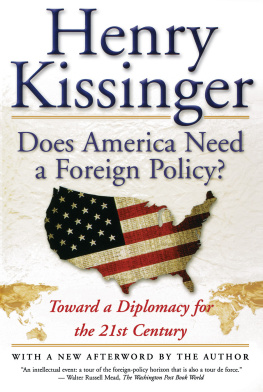

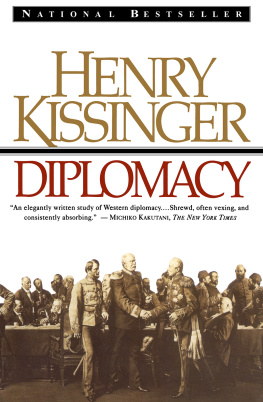
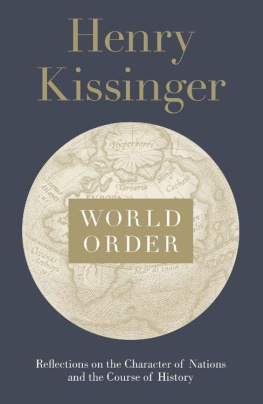

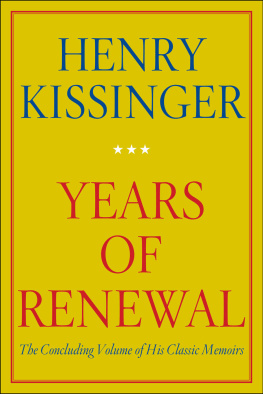
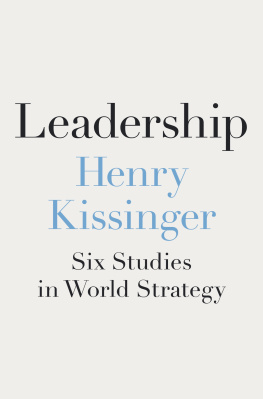

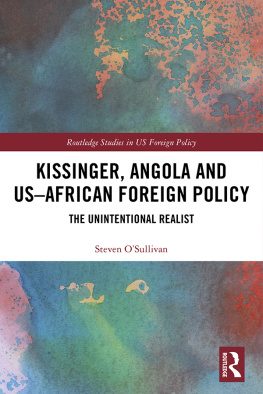

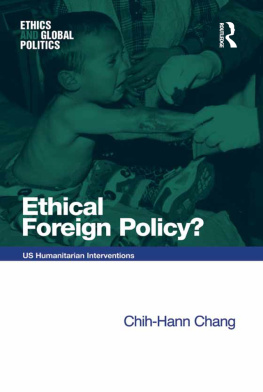
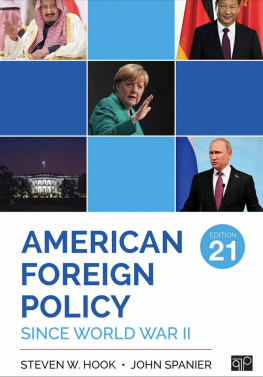
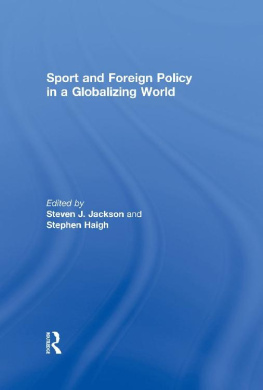
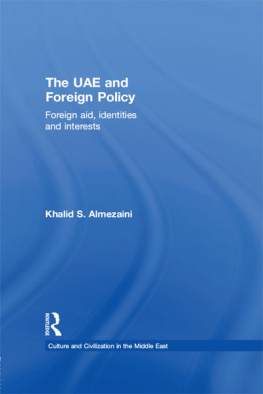


 CONTENTS
CONTENTS